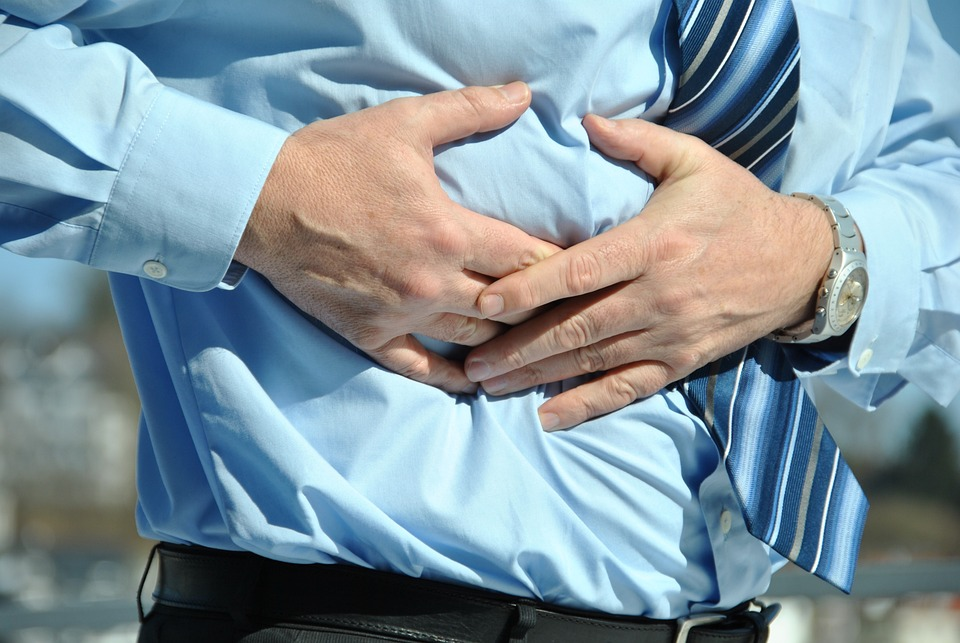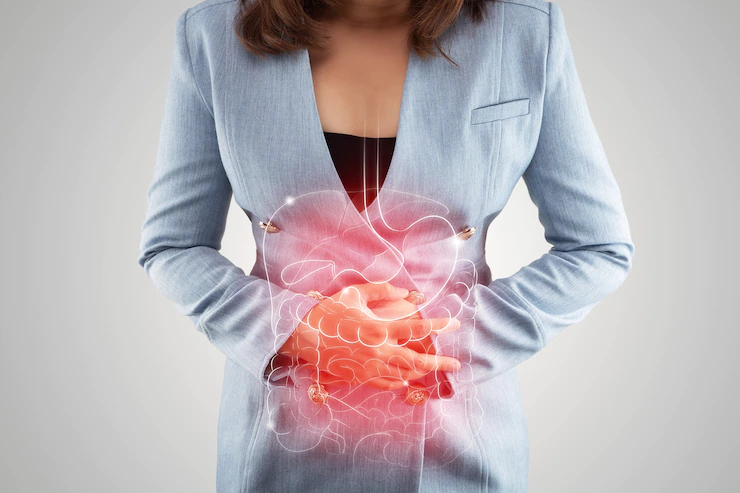
Acid Reflux: Warning Signs, Risks, and How to Protect Your Health
When stomach acid rises up your esophagus (the tube that connects your mouth to your stomach), this condition is known as acid reflux. Most people occasionally have minor reflux. You know it when you've finished a hefty meal—that burning sensation in your chest. However, you can avoid heartburn. When the reflux is mild, there is typically little chance of problems. Contrarily, persistent acid reflux may be a symptom of gastroesophageal reflux disease (GERD).
The more severe type of this condition, GERD, is not a threatening condition itself, but it can cause various health problems if left untreated. This is due to heartburn, which occurs when stomach acids reflux. Your teeth, esophagus, and other organs could be harmed by stomach acid over time. Here are the dangers of untreated acid reflux.
Acid Reflux and GERD

Image Source: Freepik
Acid reflux that is mild or irregular normally poses little danger. Although it could cause chest pain, there are no severe health concerns. A disorder called GERD, which is linked to greater symptoms and risks, may be present in those who suffer from acid reflux more often than twice per week.
GERD is a chronic condition of acid reflux. In this condition you might suffer from an acid reflux flare-up at least twice a week for many weeks. If you’re facing this then you need to inform your doctor and get diagnosed so that you can take proper care of yourself.
Common GERD signs and symptoms include:
- Poor breath
- Cough
- Having trouble swallowing (Dysphagia)
- Heartburn
- A chest ache
- Nausea
- Regurgitation
- Indigestion
- Sore throat
Complications of Untreated Acid Reflux

Image Source: Photo by freestocks.org: Pexels
It is never smart to ignore any symptoms that you might face, especially when it is related to chest pain. Here are a few complications that can arise if you leave your acid reflux untreated.
1. Esophageal Damage
The esophagus, a tube that connects your mouth to your stomach, is where acid enters when it runs back up from the stomach. Untreated acid reflux can cause the following esophageal complications:
- Esophagitis
The esophagus’ lining is irritated from stomach acid, swelling it. This inflammation, known as Esophagitis, can make swallowing unpleasant. Some other symptoms of this condition are a hoarse voice, sore throat, and heartburn.
- Esophageal Ulcers
The most common reason for ulcers, also known as sores in the esophageal lining, is GERD. Chest pain, nausea, indigestion, bloody stools, and painful swallowing are symptoms. In order to heal the ulcer and manage your GERD, your doctor will prescribe medication.
- Esophageal Stricture
The esophageal lining can become scarred as a result of the harm stomach acid causes over time. The esophagus becomes constricted as a result of this scar tissue accumulation. These small areas, known as strictures, make it difficult to swallow meals and liquids, which can cause weight loss and dehydration. Foods that are dense or solid may occasionally become stuck in the esophagus. This could make you more vulnerable to choking. Your esophagus will be gently stretched during a treatment to treat strictures.
- Barrett's Esophagus
This disorder, where stomach acid induces precancerous alterations in cells, affects 5% to 10% of persons with GERD. The good news is that esophageal cancer will only develop in 1% of those with Barrett's esophagus. The squamous cells in your lower esophagus are replaced by gland cells in this condition.
When a doctor diagnoses you at an early stage, they can remove the abnormal cells. If you have GERD, even though the disease doesn't manifest any blatant symptoms, you should visit your doctor. Your doctor might perform an Endoscopy which will help detect this condition. An Endoscopy is a technique that involves inserting a small, flexible tube with a camera into your esophagus.
2. Risk of Esophageal Cancer

Image Source: Photo by kjpargeter: Freepik
Your risk of developing this type of cancer is somewhat increased if you have GERD. Additionally, having Barrett's esophagus can increase your risk of developing esophageal cancer, particularly if your family has a history of the disease.
Chest pain and difficulty swallowing are early signs of this type of cancer that don't usually manifest until the disease has advanced. It gets more challenging to cure at that point. If you are more likely to get the illness, talk to your doctor about getting screened.
3. Tooth Decay
Your smiling face may suffer as a result of heartburn. Enamel, the hard outer covering of your teeth, can be eroded by stomach acid. Cavities may result from this weakening of the teeth.
4. Aspiration Pneumonia
You can breathe stomach acid into your lungs if it reaches your neck or mouth. This may result in lung infection and Aspiration Pneumonia. This condition has the following symptoms:
- Fever
- A Deep Cough
- Chest Pain
- Difficulty in Breathing and Wheezing
- Fatigue
- Blue skin
Aspiration Pneumonia can be fatal if left untreated. It is usually treated with antibiotics and sometimes hospital care and breathing support.
How to Avoid Complications?

Image Source: Photo by Pixabay: Pexels
Now that you understand the complications that you can face due to untreated acid reflux, here’s how you can avoid them:
- The best way to avoid acid reflux is to monitor what you eat. You should avoid eating excess greasy, acidic, fatty, or spicy food. Reflux can also be triggered by food items such as Onion, Peppermint, Chocolate, Tomato sauce, Garlic, and Citrus fruits.
- Another thing you can do about avoiding acid reflux is logging into a diary which food items particularly cause you reflux. This will help you in figuring out what food items particularly you should avoid.
- You should also try to sleep 2-3 hours after your last meal. This will aid your stomach in digestion and thus prevent heartburn.
- You should also try to avoid Caffeine and Alcohol, as they can also cause reflux.
- Getting enough sleep is always a prerequisite for a healthy body and similar is the case of acid reflux. Make sure that you get enough sleep.
The Bottom Line
The majority of the time, occasional heartburn and acid reflux aren't linked to serious or long-lasting consequences. But it can be problematic if it happens regularly and is not addressed. By getting treatment for acid reflux, you can lessen your risk of experiencing significant or fatal complications.







1 comment
My husband has chronic GERD
Monica Lotey
Leave a comment
This site is protected by hCaptcha and the hCaptcha Privacy Policy and Terms of Service apply.